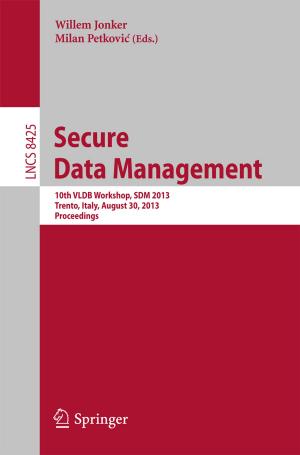Engineering Ethics for a Globalized World
Nonfiction, Science & Nature, Technology, Industrial Design, Religion & Spirituality, Philosophy, Reference| Author: | ISBN: | 9783319182605 | |
| Publisher: | Springer International Publishing | Publication: | June 22, 2015 |
| Imprint: | Springer | Language: | English |
| Author: | |
| ISBN: | 9783319182605 |
| Publisher: | Springer International Publishing |
| Publication: | June 22, 2015 |
| Imprint: | Springer |
| Language: | English |
This volume identifies, discusses and addresses the wide array of ethical issues that have emerged for engineers due to the rise of a global economy. To date, there has been no systematic treatment of the particular challenges globalization poses for engineering ethics standards and education. This volume concentrates on precisely this challenge. Scholars and practitioners from diverse national and professional backgrounds discuss the ethical issues emerging from the inherent symbiotic relationship between the engineering profession and globalization. Through their discussions a deeper and more complete understanding of the precise ways in which globalization impacts the formulation and justification of ethical standards in engineering as well as the curriculum and pedagogy of engineering ethics education emerges.
The world today is witnessing an unprecedented demand for engineers and other science and technology professionals with advanced degrees due to both the off-shoring of western jobs and the rapid development of non-Western countries. The current flow of technology and professionals is from the West to the rest of the world. Professional practices followed by Western (or Western-trained) engineers are often based on presuppositions which can be in fundamental disagreement with the viewpoints of non-Westerners. A successful engineering solution cannot be simply technically sound, but also must account for cultural, social and religious constraints. For these reasons, existing Western standards cannot simply be exported to other countries.
Divided into two parts, Part I of the volume provides an overview of particular dimensions of globalization and the criteria that an adequate engineering ethics framework must satisfy in a globalized world. Part II of the volume considers pedagogical challenges and aims in engineering ethics education that is global in character.
This volume identifies, discusses and addresses the wide array of ethical issues that have emerged for engineers due to the rise of a global economy. To date, there has been no systematic treatment of the particular challenges globalization poses for engineering ethics standards and education. This volume concentrates on precisely this challenge. Scholars and practitioners from diverse national and professional backgrounds discuss the ethical issues emerging from the inherent symbiotic relationship between the engineering profession and globalization. Through their discussions a deeper and more complete understanding of the precise ways in which globalization impacts the formulation and justification of ethical standards in engineering as well as the curriculum and pedagogy of engineering ethics education emerges.
The world today is witnessing an unprecedented demand for engineers and other science and technology professionals with advanced degrees due to both the off-shoring of western jobs and the rapid development of non-Western countries. The current flow of technology and professionals is from the West to the rest of the world. Professional practices followed by Western (or Western-trained) engineers are often based on presuppositions which can be in fundamental disagreement with the viewpoints of non-Westerners. A successful engineering solution cannot be simply technically sound, but also must account for cultural, social and religious constraints. For these reasons, existing Western standards cannot simply be exported to other countries.
Divided into two parts, Part I of the volume provides an overview of particular dimensions of globalization and the criteria that an adequate engineering ethics framework must satisfy in a globalized world. Part II of the volume considers pedagogical challenges and aims in engineering ethics education that is global in character.















